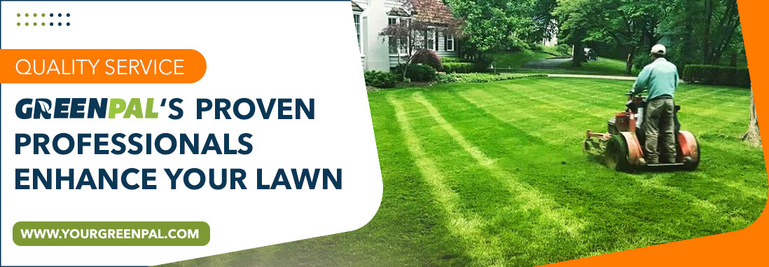Having A Zero-Cost Lawn (Helping the Environment and Your Wallet)
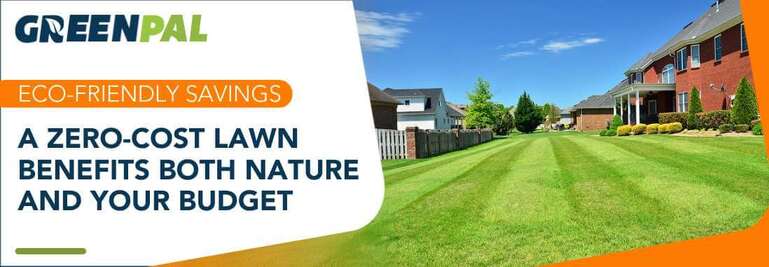
It’s true having a lawn is great.
But, if you want a great lawn, it's going to take a lot of work.
And it's no secret, if you use chemical products they can cause harm to the environment.
Here’s the catch though, if you take some extra time to work with nature.
You can cut costs, have a great lawn, and work with the plants and animals around you all at the same time.
Sound like a plan? Then lets jump right on in!
Method #1- Choose Electric Over Gas
First of all, with any type of equipment, it is best to use electric if you can. At Least when it comes to the environmental impact in your area.
Get this, you can now buy lawn mowers and weed-eaters that are completely electric, or run on batteries that you charge when you need to mow the lawn.
Look, while these still create emissions, the impact on the environment is far less than what you would have with a gasoline lawn mower or weed-eater.
Best of all, if you have a small lawn and can use cheap corded electric equipment, you can save a lot of money on your equipment. Or of course, you could consider hiring an affordable lawn care company near you.
Electric equipment is better for your local environment because:
It runs quiet,
No local emissions,
No need to handle or transport gas.
Have a large lawn? If that’s the case, corded-electric equipment may be out of the question. Luckily battery powered equipment has come a long way. While it may cost more, you will still get all the benefits of the corded electric equipment.
For example, many landscapers prefer battery powered hedge trimmers for smaller lawns.
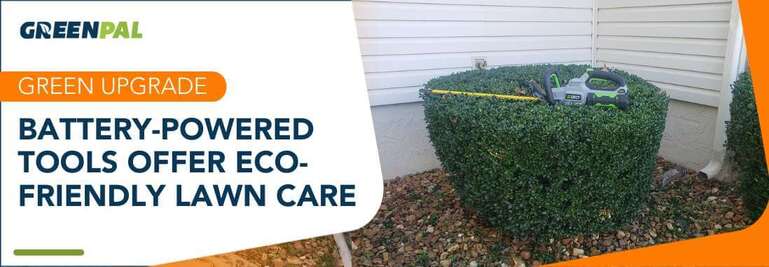
Method #2- Conserve Water in Your Lawn
Second, if you are going to water your lawn, don't use water from the hose.
Instead, install rain barrels.
Here’s why, rain barrels will allow you to collect rainwater from your eaves, and at the same time, allow you to use water that is sustainably harvested.
You would be surprised by how much water you can harvest during a rainstorm, and all of that water can then be used on your lawn or in your garden.
Plus it is completely free! And the cost of watering your lawn or your garden won't show up on your water bill. Additionally you won’t have to worry about local water regulations.
Remember, your lawn and garden only needs one inch of water a week, so there is plenty of water in the rain barrel for that.
Pro Tip! Using drip irrigation systems can nearly eliminate any water waste by getting the water exactly where it is needed.
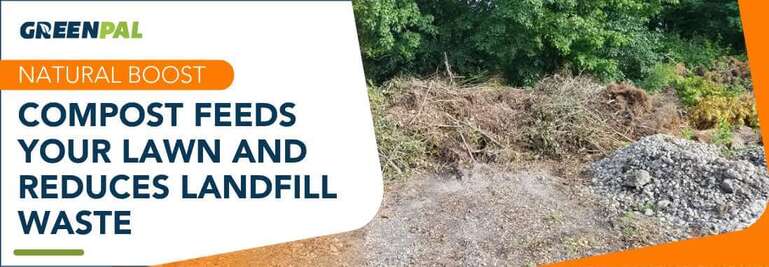
Method #3- Compost > Fertilizer
If you are going to put any sort of fertilizer on your lawn, instead use compost that you create over the course of the winter.
The compost will have everything your lawn needs. And you will be eliminating the organic waste going into the landfills, which accounts for 33 percent of waste there.
You can also compost your grass clippings either by bagging the clippings. Or using a mulching blade to keep the grass on the lawn.
Best of all, compost won’t cost you a dime!
While compost may take a bit of preparation to get ready for application on your lawn. It will also add beneficial bacteria colonies and other microbes to your lawn. Which can help your lawn stand up to droughts, and fungal infections.
How long does it take to create compost?
Compost takes 24 hours to 12 months to create, depending on factors like temperature, moisture, and the materials used.
Composting Method |
Time to Create Compost |
Factors Influencing Time |
|---|---|---|
Basic Composting |
3 to 6 months |
Standard conditions, minimal intervention |
Hot Composting |
2 to 3 months |
Regular turning, proper aeration |
Cold Composting |
6 to 12 months |
Minimal maintenance, slower decomposition |
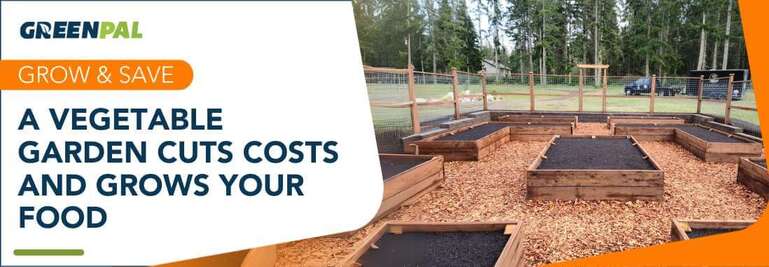
Method #4- Install a Vegetable Garden
Finally, you can do a lot of good for the environment and your wallet by installing a vegetable garden.
Vegetable gardens can be a great hobby that can limit the amount of grass you will need to maintain. It will also harbor beneficial insects and of course it can produce free food!
Get this, very effective gardeners can even get to the point where their garden pays the bills! So not only can a vegetable garden save you money, it can help you make money too.
Frequently Asked Questions
What are the best plants for a low-maintenance lawn?
For a low-maintenance lawn, consider planting native grasses and ground covers that require less water and mowing. Examples include buffalo grass, clover, and fescue
How do I start composting at home?
- Choose a bin: Get a compost bin or set up a pile in your yard.
- Add materials: Layer greens (fruit/veggie scraps, grass) and browns (leaves, paper).
- Maintain: Turn the pile regularly, keep it moist.
- Wait: Allow 3 to 6 months for compost to mature.
Saving Money and Your Environment
Here's how to have a zero-cost lawn that's good for the environment and your wallet:
Key takeaways:
- Choose electric lawn care equipment.
- Collect rainwater in rain barrels.
- Compost instead of using fertilizer
- Plant a vegetable garden
By simply adopting some of these simple methods, you can save money, and cultivate a healthier environment.
And who could argue with that?





 Share
Share





